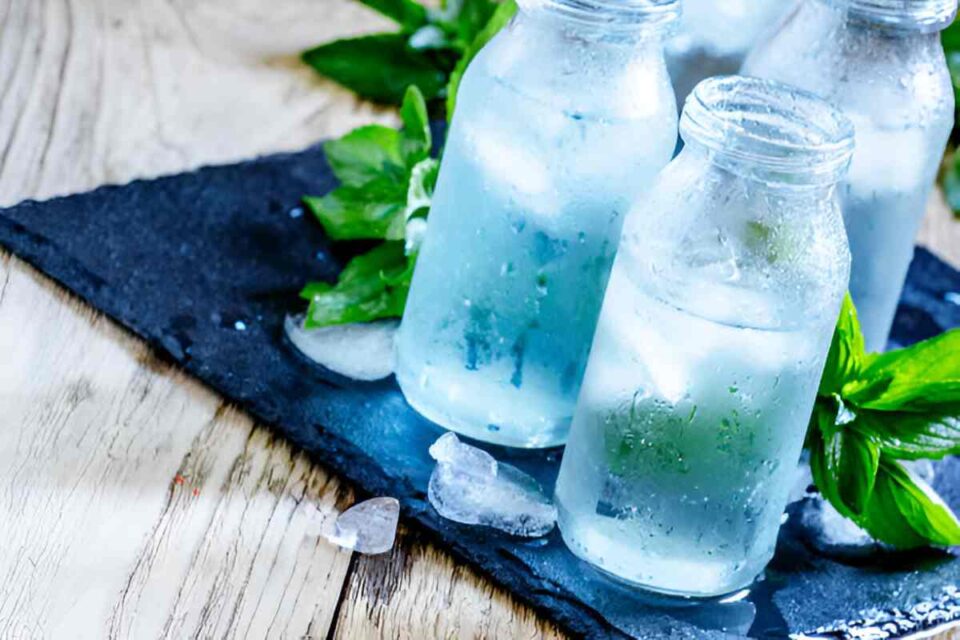Can You Drink Distilled Water? Distilled water is a purified water product that is produced via distillation. In this process, the water is boiled first, creating steam. Then, the steam is condensed to the liquid form again, leaving impurities, minerals, and contaminants it had carried in water behind. This leaves behind pure water. Many people wonder whether it is safe to drink distilled water and whether it offers any health benefits or potential risks. In this article, we explore the side effects, pros, and cons of comparing distilled water to purified water, along with its common uses.
Table of Contents
Side Effects of Distilled Water
Distilled water is usually safe to drink, but it does possess some properties that can affect your health if drunk exclusively for extended periods. Nearly all minerals, including good ones such as calcium, magnesium, and potassium, are removed during the distillation process. These minerals are essential for daily body functions.
Drinking only distilled water can potentially cause an electrolyte imbalance, particularly if it is the only water consumed. There are no minerals in distilled water, which could cause a loss of minerals in the body and lead to dehydration or hyponatremia. This low sodium level condition can present with headaches, nausea, and fatigue.
In addition, the absence of minerals may cause a slightly acidic pH level in the body, impacting bone health and other body functions in the long run. However, these effects are usually only concerned with excessive and long-term consumption of distilled water instead of regular water or other mineral-rich beverages.
Pros and Cons of Distilled Water
Pros:
- Purity: Distilled water is among the purest water sources because the distillation process eliminates almost all types of contaminants, including bacteria and viruses, heavy metals, and chemicals.
- Free from Additives: Distilled water normally does not contain additives such as chlorine or fluoride, which are normally associated with tap water in most municipalities.
- Taste Neutral: Because distilled water lacks minerals and impurities, it has a neutral taste, which is a preference for some people.
Cons:
- Mineral content: As seen above, the distilled water contains no spring or mineral water minerals. For the body functions, minerals in spring or mineral water are inevitable. In a long run, it leads to mineral deficiency as such water is considered as the source.
- Flat Taste: Some complain that distilled water is flat or flat-tasting. This is so because the natural flavor of the water is also due to its minerals.
- Potential for Leaching: Since distilled water is mineral-free, it can leach minerals from your body or the containers it is stored in, which may accelerate corrosion in pipes or containers.
Distilled Water vs. Purified Water
Although the terms distilled water and purified water are often used interchangeably, there are some key differences. Purified water is any water treated to remove impurities through processes like filtration, reverse osmosis, or distillation. Distilled water, in particular, has been treated through distillation.
Distilled water is pure and free of all contaminants and minerals, while purified water could retain some minerals depending on the filtration method applied. Reverse osmosis filters most contaminants out but leaves a few minerals behind in the water. Therefore, distilled water would be considered the purer of most purified water, while purified water would have a better mineral content.
Common Uses of Distilled Water
Distilled water is used extensively in purity-sensitive applications. A few of the most common applications are as follows:
- Medical and Laboratory Applications: Hospitals and lab settings utilize distilled water to avoid contamination that might hamper the experiments or medical treatments.
- Aquarium Care: Distilled water often applies in aquariums, especially when mineral content needs to be controlled.
- Steam Irons: Distilled water is advised to be used in steam irons to avoid mineral buildup and extend the life of the device.
- Cosmetic Manufacturing: Many cosmetics and skin care products are prepared using distilled water to ensure that no impurities or contaminants affect the quality of the product.
Conclusion
Drinking distilled water sometimes is not harmful and can be helpful in certain situations where purity is a must. However, it is not the best option for daily hydration because it lacks essential minerals. It is always a good idea to balance your water intake with other sources of hydration that provide vital minerals. As with any water, moderation is key to maintaining overall health and well-being.

